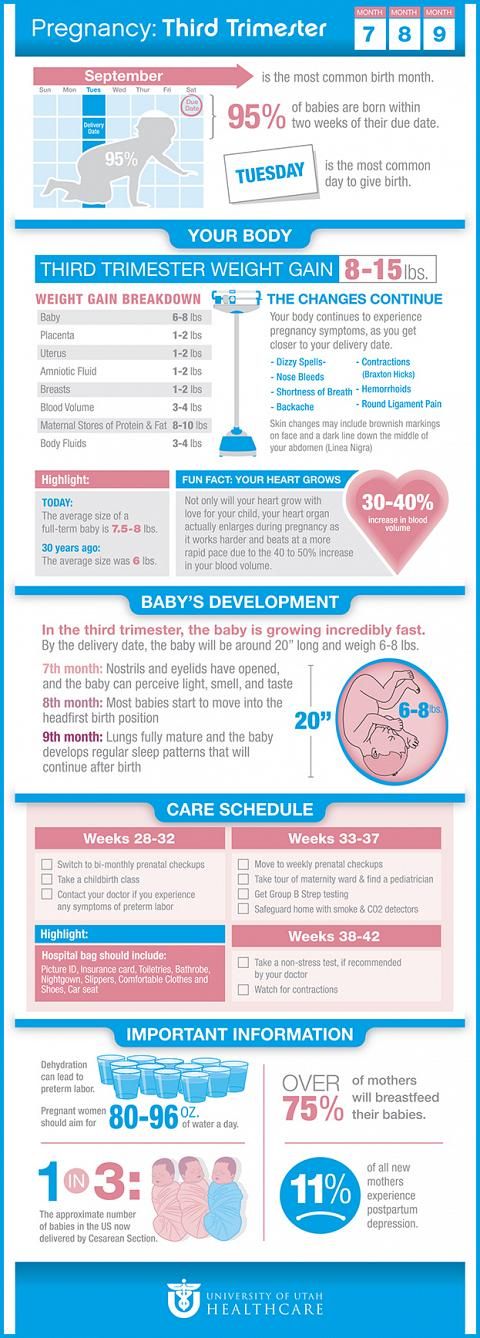What to do when you have a cold while pregnant
Treating a Cold or Flu When Pregnant
When you become pregnant, everything that happens to you can affect not just your body but the fetus, too. This can make dealing with being sick more complicated. Before pregnancy, if you got a cold or became sick with the flu, you may have taken an over-the-counter (OTC) decongestant. Now that you’re pregnant, you might wonder whether it’s safe. Although medications can relieve your symptoms, some may harm a developing fetus. But treating a cold or flu during pregnancy doesn’t have to be a stressful experience, and you can take many medications while pregnant.
Medications
According to most OB-GYNs, it’s best to avoid all medications in the first
12 weeks of pregnancy. That’s a critical time for the development of a fetus’s vital organs. It’s a good idea to speak with your doctor if you’re pregnant or trying to get pregnant and currently taking medication or considering taking medication. Several medications are considered safe after 12 weeks of pregnancy. These include:
- topical menthol
- nasal strips
- cough drops or lozenges
- acetaminophen (Tylenol) for aches, pains, and fevers
- cough suppressant at night
- expectorant during the day
- calcium-carbonate (Mylanta, Tums) or similar medications for heartburn, nausea, or upset stomach
- plain cough syrup
- dextromethorphan (Robitussin) and dextromethorphan-guaifenesin (Robitussin DM) cough syrups
Avoid all-in-one medications that combine ingredients to tackle many symptoms. Instead, choose single medications for the symptoms you’re dealing with. You should also avoid the following medications while pregnant unless your doctor recommends you take them. They increase the risk for problems:
- aspirin (Bayer)
- ibuprofen (Advil, Motrin)
- naproxen (Aleve, Naprosyn)
- codeine
- Bactrim, an antibiotic
Home remedies for cold and flu during pregnancy
When you get sick while pregnant, your first steps should be to:
- Get plenty of rest.

- Drink a lot of fluids.
- Gargle with warm salt water if you have a sore throat or cough.
If your symptoms worsen, you might want to try:
- saline nasal drops and sprays to loosen nasal mucus and soothe inflamed nasal tissue
- breathing warm, humid air to help ease congestion; a facial steamer, hot-mist vaporizer, or even a hot shower can work
- chicken soup to help relieve inflammation and soothe congestion
- adding honey or lemon to a warm cup of decaffeinated tea to relieve a sore throat
- using hot and cold packs to alleviate sinus pain
Is it a cold or the flu?
The common cold and the flu share many symptoms, such as a cough and runny nose. However, a few differences can help you tell them apart. If your symptoms are generally mild, then you likely have a cold. Also, chills and fatigue are more likely with the flu.
Things you can do to reduce your risk
When you’re pregnant, your body’s immune system becomes weaker to prevent your body from rejecting the fetus. But, it also leaves you more vulnerable to viral and bacterial infections. Pregnant people are also
But, it also leaves you more vulnerable to viral and bacterial infections. Pregnant people are also
than nonpregnant folks their age to have flu complications. These complications may include pneumonia, bronchitis, or sinus infections. Getting a flu vaccination can reduce your risk of infection and complications. Other things you can do to reduce your risk of getting sick include:
- washing your hands often
- getting enough sleep
- eating a healthy diet
- avoiding close contact with sick family or friends
- exercising regularly
- reducing stress
When should I call my doctor?
Although most colds don’t cause problems for a fetus, you should take the flu more seriously. Flu complications increase the risk of premature delivery and birth defects. Get immediate medical help if you experience the following symptoms:
- dizziness
- difficulty breathing
- chest pain or pressure
- vaginal bleeding
- confusion
- severe vomiting
- high fever that isn’t reduced by acetaminophen
- decreased fetal movement
The
CDC recommends treating pregnant people with flu-like symptoms immediately with antiviral medications.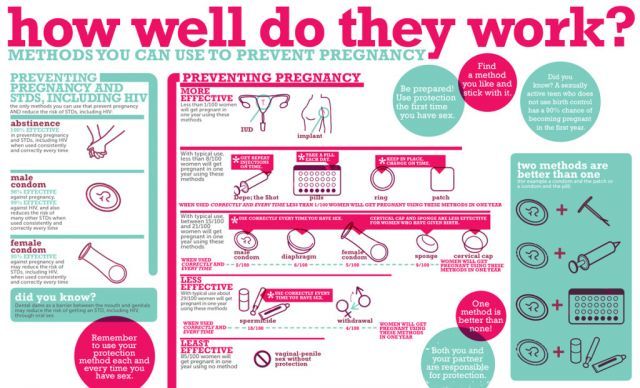 Call your doctor’s office if you have any questions or you’re not sure your symptoms are worrisome.
Call your doctor’s office if you have any questions or you’re not sure your symptoms are worrisome.
Takeaway
Getting sick while pregnant can be particularly unpleasant, and you might wonder whether it’s safe to take OTC medications to ease your symptoms. Generally, doctors recommend avoiding medications in the first 12 weeks of pregnancy. If you’re currently taking medication for a condition or it’s after 12 weeks, and you want to take something to reduce cold or flu symptoms, it’s a good idea to talk with a doctor about what’s safe and what you should avoid.
You Won't Get Flu and Cold at the Same Time
By Matt Berger on December 23, 2019 — Fact checked by Dana K. Cassell
Share on PinterestExperts say a cold and the flu (influenza) may have similar symptoms, but the flu is a far more serious illness. Getty Images- You likely won’t have both a cold and the flu at the same time, according to a new study that found strong evidence that the viruses that cause the illnesses interfere with each other.

- That interaction could mean that having the flu prevents or delays the onset of a cold, and vice versa.
- The research could open the door to potential new vaccines or treatments that mimic the way one virus wards off the other.
- Experts say the best prevention against influenza this season is to get a flu shot.
You can be hung over from the holiday party and also have a cold.
You can be jet-lagged from flying home and also come down with the flu, or influenza.
But you likely won’t have both a cold and the flu at the same time.
That’s the finding from a new study that examined thousands of records of illnesses.
Its conclusion was that there is strong evidence the viruses that cause colds and influenza interact — and interfere with each other — in the human body.
That interaction could mean that having the flu prevents or delays the onset of a cold, and vice versa.
However, researchers say further research is needed to nail down how this interaction may occur and what it means.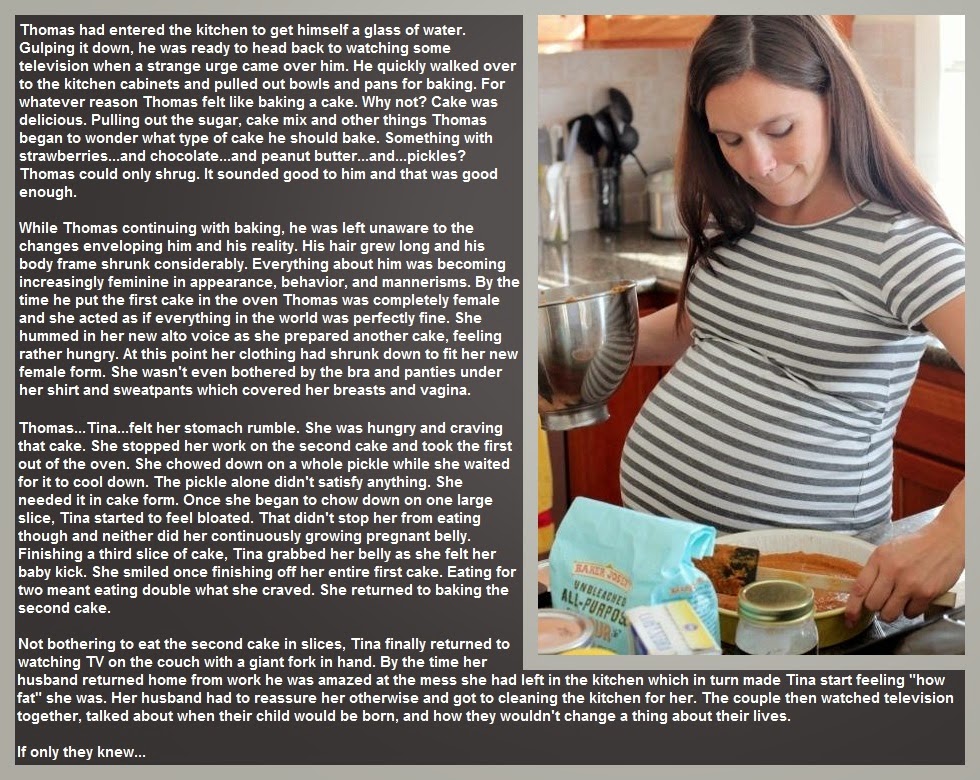
If that interaction can be understood better, it could open the door to potential new vaccines or treatments that, say, mimic the way a cold virus wards off the flu.
The study from researchers at the University of Glasgow in the United Kingdom notes there have been numerous clues that viruses like those that cause the flu and common cold interact.
This includes the fact that the flu and cold tend to peak at different times of the year.
To see if there was statistical evidence of this interaction, researchers looked at 9 years of data, covering 44,230 cases of a respiratory illness in which each person was tested for 11 virus groups.
The researchers concluded that the viruses likely interact in a way that makes it unlikely someone would show symptoms of more than one infection at once.
“This is a very interesting study,” Dr. Yvonne Maldonado, chief of Stanford University’s Division of Pediatric Infectious Diseases in California, told Healthline.
“What’s really interesting is the opportunity to understand how organisms work together or collaborate, if you will. ”
”
Maldonado said how these viruses work together or interfere with each other is still unknown, although it’s been suggested that being affected by one type of virus may help create immunity against others.
“It’s too early to say that they’re suppressing one another or how that’s happening, but this gives us opportunities to study that further,” she said.
But it could turn out that having the flu creates an immune response that reacts to a virus such as rhinovirus, which causes the common cold, and delays or prevents the virus from causing symptoms. Or vice versa.
If so, and if we could understand how and why that works, we then could try to develop vaccines that target that immune response and “amplify” it to further delay viral infections or prevent them altogether, Maldonado said.
For now, the best way to avoid the flu this winter isn’t to get a different viral infection.
It’s getting the flu shot.
This year’s flu outbreak was expected to peak in the United States in late December. From October 1 through mid-December of this year, as many as 5.3 million people in the country had already come down with the flu. The illness had killed as many as 4,500 people, according to the Centers for Disease Control and Prevention (CDC).
From October 1 through mid-December of this year, as many as 5.3 million people in the country had already come down with the flu. The illness had killed as many as 4,500 people, according to the Centers for Disease Control and Prevention (CDC).
A lot of those with the flu may think they simply have a cold since the symptoms can be similar.
But unlike a cold, the flu is far more likely to lead to serious complications. A healthcare provider can tell you whether it’s a cold or the flu.
“Having a cold is completely different from having influenza. Flu can kill you,” Maldonado said.
Colds during pregnancy: how to treat?
Any cold or respiratory disease in early pregnancy, during the primary formation of the fetus, can lead to unpredictable consequences and complications. The matter is complicated by the fact that most medications are absolutely contraindicated for use during gestation.
In this regard, the treatment and prevention of colds in pregnant women is an important issue, which should be approached especially responsibly! The main thesis is: be careful with medicines and apply mild preventive measures based on alternative medicine methods to avoid respiratory diseases and flu. nine0003
nine0003
"One for two - immunity"
This is a very fragile system, it is not necessary to interfere in its work, but it is necessary to support and strengthen it. Pregnancy belongs to the category of special, albeit temporary, conditions during which a woman needs additional protection.
This issue will help simple recommendations that are available to everyone:
• During the period of frequent weather changes, it is necessary to dress warmer, paying special attention to footwear. nine0017 • During an epidemic, it is better for a pregnant woman to refrain from being in crowded places - transport, metro, shops and hospitals. If there is an urgent need, to prevent possible infection, a protective respiratory mask should be worn before leaving the house.
• Be especially careful about hygiene after visiting the street and public places. Upon returning home, the first thing to do is wash your hands thoroughly.
Interesting: More than 90% of all acute respiratory infections are caused by viruses, about 10% are bacteria and other pathogens. Accordingly, any soap can be used, not necessarily antibacterial.
• Before going outside, you can lubricate the nasal mucosa with oxolinic ointment. Upon returning home, flush the upper respiratory tract with soda solution.
• Rationalization of nutrition and intake of vitamins will strengthen the immune defense. It is especially useful to eat fruits and vegetables that are enriched with vitamins and have not undergone heat treatment. nine0003
Interesting: our grandmothers used to say: in order not to get sick, you need to drink chicken broth! Strange, but until recently, scientists did not attach much importance to this prophylactic. Pulmonologist Stefan Rennard decided to find out if this was true or not. The professor conducted a study and proved that the use of chicken broth affects the mobility of neutrophils, leukocytes that protect the body from infections and activate the immune system.
- Vitamins can be taken using ready-made pharmaceutical multivitamin complexes. Before choosing a drug, you should consult your doctor. nine0035
- Compliance with the regimen and duration of sleep - at least 9 hours a day. The possibility of psychotraumatic situations should be minimized.
- Maintaining cleanliness in the living quarters (ventilation, wet cleaning).
- Air humidification is an important aspect in the prevention of influenza and respiratory diseases. If air conditioners or heaters are used in the house of a pregnant woman, it would be best to purchase a mechanical humidifier. nine0035
Medications for prevention
- Grippferon - a drug in the form of drops for the nose, which provides prevention and treatment of influenza, is not contraindicated for pregnant and lactating women. The medicine stimulates an increase in immunity, has a pronounced antiviral effect that can protect against colds, infections and influenza varieties.

- Ascorbic acid - can be used as a separate source of vitamin C in a synthetic version, with a reduced daily intake from food. Ascorbic acid not only prevents infection, but also fights viruses that have already entered the body of a woman. nine0035
- Viferon - nasal ointment, which is prescribed for the prevention of influenza and respiratory infections during an epidemic. The ointment has protective and immunomodulatory effects, and also allows you to deal with disorders that are already occurring in the body at the time of use. Viferon in the form of a nasal ointment has no contraindications for use in pregnant women at any time, including the first trimester.
- Aquamaris is a natural drug in the form of a nasal spray that allows you to moisturize the nasal mucosa, thereby reducing the risk of influenza viruses entering the nasal cavity. nine0035
I would like to say a few words about such a method of prevention as vaccination.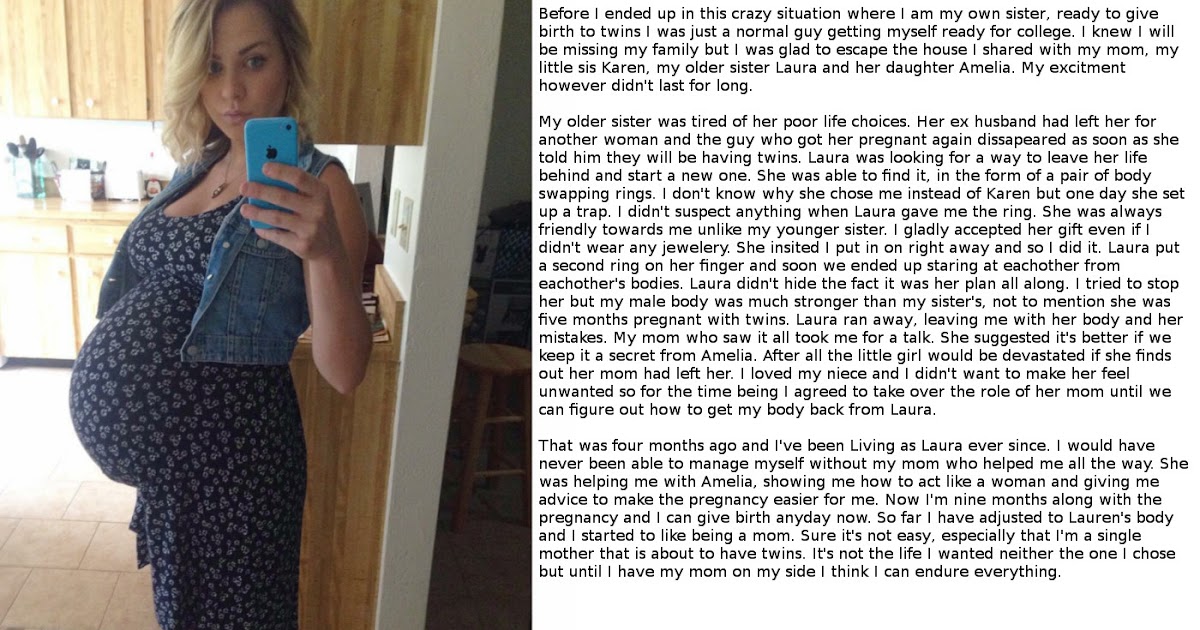 Most often, the expectant mother may be at risk of infection due to the annual influenza epidemic. This disease is dangerous for a pregnant woman precisely because of its complications: pneumonia, bronchitis, otitis media. Influenza in a pregnant woman can also affect the health of the fetus. Most of all, it is dangerous in the early stages of pregnancy, when the tissues and organs of the human embryo are laid and formed. Viral intoxication or drug exposure can lead to pathology of the child's organs. In later pregnancy, there is a risk of infection of the fetus. nine0003
Most often, the expectant mother may be at risk of infection due to the annual influenza epidemic. This disease is dangerous for a pregnant woman precisely because of its complications: pneumonia, bronchitis, otitis media. Influenza in a pregnant woman can also affect the health of the fetus. Most of all, it is dangerous in the early stages of pregnancy, when the tissues and organs of the human embryo are laid and formed. Viral intoxication or drug exposure can lead to pathology of the child's organs. In later pregnancy, there is a risk of infection of the fetus. nine0003
The most dangerous consequence of influenza in a pregnant woman is threatened miscarriage or premature birth!
It is quite natural that expectant mothers often wonder whether or not to vaccinate.
Studies have concluded that the use of inactivated ("killed") influenza vaccines does not have a teratogenic effect on the fetus and does not harm the health of a pregnant woman. After consulting with your doctor about such an inoculation, you can come to an optimal solution. nine0073 If an influenza epidemic is inevitable, and the pregnant woman has no contraindications, then the vaccine should be given. If a pregnant woman has a negligible risk of infection, she does not come into contact with a large number of people, or is opposed to vaccination, then you can not do it. According to research, it is known that vaccination of mothers reduces the risk of influenza infection of a born child by 63%. Seasonal influenza prevention is carried out in September, October. Vaccinations for pregnant women are recommended from the second trimester of pregnancy. nine0003
After consulting with your doctor about such an inoculation, you can come to an optimal solution. nine0073 If an influenza epidemic is inevitable, and the pregnant woman has no contraindications, then the vaccine should be given. If a pregnant woman has a negligible risk of infection, she does not come into contact with a large number of people, or is opposed to vaccination, then you can not do it. According to research, it is known that vaccination of mothers reduces the risk of influenza infection of a born child by 63%. Seasonal influenza prevention is carried out in September, October. Vaccinations for pregnant women are recommended from the second trimester of pregnancy. nine0003
In the period of a planned pregnancy, a flu shot is given 1 month before it: the formation of immunity occurs 2-4 weeks. Protection after vaccination lasts about a year.
If infection does occur, action should be taken immediately if at least one symptom of the disease is detected. The health of a pregnant woman and her unborn child depends entirely on her responsibility and respect for her own body.
Proven folk remedies will be used first. Since pregnant women cannot steam their legs, steam their hands, and this will facilitate nasal breathing. Bundle up, put on woolen socks and crawl under the covers: warmth, peace and sleep are good for colds. Do not forget to drink plenty of water - hot green tea with lemon and honey, lime blossom tea, cranberry juice, rosehip broth, dried fruit compote. Ginger in the form of tea also helps, not only with catarrhal symptoms, but with nausea in the morning. nine0003
Various hot milk drinks are also suitable. Honey can be added to milk, and it is best to boil it on onions. It must be emphasized right away that not all herbs for colds during pregnancy can be used. Here is a list of medicinal plants that are contraindicated: aloe, anise, barberry, elecampane (grass and root), sweet clover, oregano, St. John's wort, strawberries (leaves), viburnum (berries), raspberries (leaves), lemon balm, lovage, wormwood, licorice ( root), celandine, sage.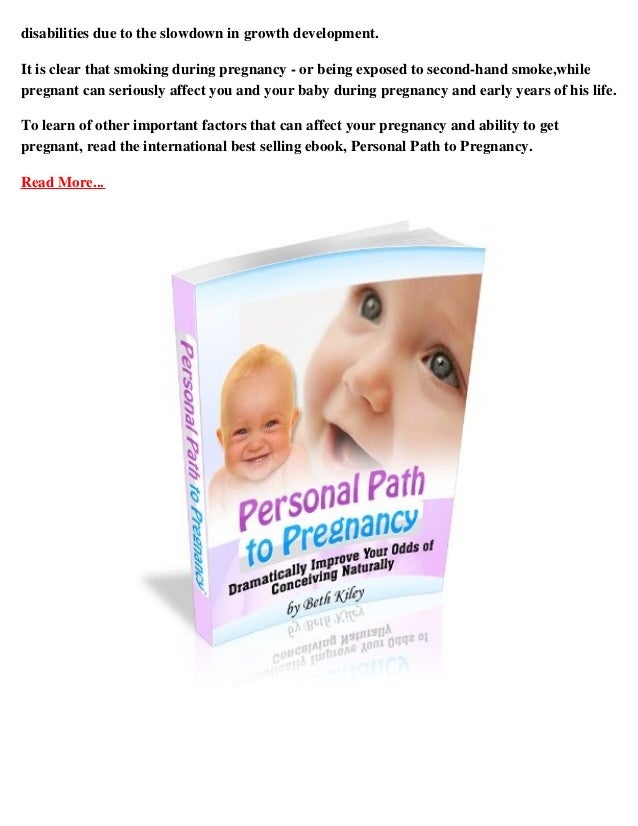 Accordingly, preparations containing these plants should not be taken. nine0003
Accordingly, preparations containing these plants should not be taken. nine0003
The use of medicines for colds during pregnancy must be treated with great care!
It is contraindicated to use the following drugs : Pertussin, Tussin plus, Joset, Glycodin, Ascoril, Travisil, Broncholitin, ACC, Grippeks, Codelac, Terpinkod. Do not use lozenges and lozenges for sore throat or cough are also undesirable due to the likelihood of allergic reactions.
Spray Pinosol, judging by the components indicated in the instructions, is not dangerous during pregnancy. However, the essential oils contained in the preparation - pine, peppermint, eucalyptus, thymol, guaiazulene (wormwood oil) - can lead to an allergic reaction with swelling of the nasal mucosa. nine0003
Viferon suppositories are allowed to be used only after 14 weeks from the start of conception. This drug contains recombinant human interferon alpha-2, ascorbic acid and alpha-tocopherol acetate and has antiviral, immunomodulatory and antiproliferative effects.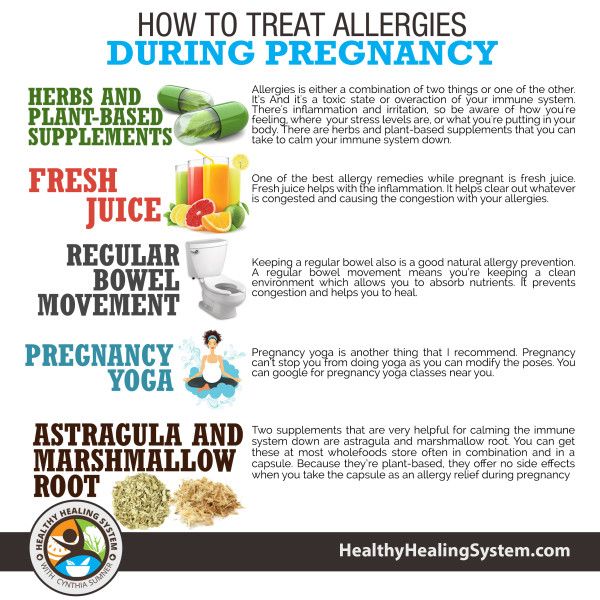 It is used in the treatment of various infectious and inflammatory diseases in adults and children (including newborns). In the form of an ointment, Viferon is used to treat herpetic lesions of the skin and mucous membranes. The ointment is applied in a thin layer to the affected areas of the skin 3-4 times a day for 5-7 days. nine0003
It is used in the treatment of various infectious and inflammatory diseases in adults and children (including newborns). In the form of an ointment, Viferon is used to treat herpetic lesions of the skin and mucous membranes. The ointment is applied in a thin layer to the affected areas of the skin 3-4 times a day for 5-7 days. nine0003
The homeopathic preparation Stodal, which includes predominantly herbal ingredients, acts on various types of cough and has an expectorant and bronchodilator effect.
Viburkol - homeopathic suppositories - have analgesic, anti-inflammatory, sedative, antispasmodic action. They are prescribed in the complex therapy of acute respiratory viral infections and other uncomplicated infections (including in newborns), as well as in inflammatory processes of the upper respiratory tract and inflammatory diseases of the genitourinary system. nine0003
So, you can try to eliminate a slight ailment on your own, but there are conditions under which you need to call a doctor at home:
- Prolonged fever;
- Myalgia, fatigue, fatigue, general malaise;
- Difficulty breathing, nasopharyngeal lumps and dry or wet barking cough;
- A pregnant woman is troubled by severe pressing headache.
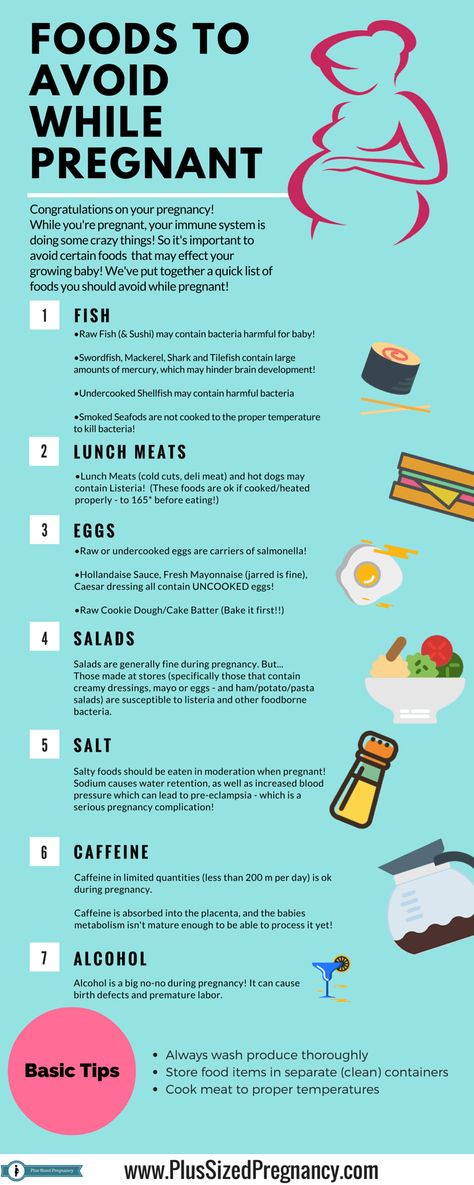 nine0035
nine0035
In conclusion, I would like to emphasize the importance of treating chronic diseases before pregnancy, a healthy lifestyle during childbearing and following all doctor's orders.
I wish expectant mothers and their loved ones to try to maintain a good mood: optimists live longer and happier, they are more productive. Remember your victories and pleasant moments more often and everything will be fine!
Cold during pregnancy. What to do?
When you're expecting, your immune system works at a slower pace than usual, which is actually a good thing because it protects your growing baby and keeps your body from thinking the fetus is a foreign creature. However, the downside of this immune suppression is that your body does not defend itself against many of the viruses that cause colds, which can make you more vulnerable to symptoms such as nasal congestion, cough, and sore throat. nine0003
The good news about even the worst cold symptoms is that your child doesn't experience any of them. In fact, the environment of the womb keeps the baby completely protected from these hardships.
In fact, the environment of the womb keeps the baby completely protected from these hardships.
As far as you are concerned, a cold is basically an uncomfortable irritation that is best relieved by rest, drinking plenty of water, patience, and consultation with your doctor. The doctor must be aware of all your symptoms and ailments, including any cold. If necessary, he can also prescribe you the necessary medicines that are considered safe during pregnancy. nine0003
Although many cold medicines are usually prohibited during pregnancy, you do not need to suffer from a runny nose and a violent cough when you are pregnant. Some of the most effective cold remedies are not available over the counter.
Here are some of them:
- Lying in bed doesn't necessarily shorten the duration of a cold, but if your body is asking for some rest, be sure to listen.
- If you do not have a fever or cough, do some light to moderate exercise that is safe for pregnant women.
It can really help you feel better faster. nine0035
- Keep eating. Sure, you probably don't have much of an appetite, but eating as healthy a meal as possible can help you manage some of your cold symptoms.
- Vitamin C foods can help boost your immune system naturally. Try all kinds of citrus fruits (oranges, tangerines, grapefruits), strawberries, melon, kiwi, mangoes, tomatoes, bell peppers, papaya, broccoli, sauerkraut and spinach.
- Zinc may also help strengthen the immune system. Pregnant women should aim to get 11-15 milligrams each day from all sources, including vitamins. nine0035
- Fever, sneezing and a runny nose help you lose fluids that you and your baby need. Warm drinks are soothing, so keep a thermos of hot beverages like ginger tea, hot soup, or chicken broth close at hand. Try to drink enough to stay "well hydrated" - your urine should be the color of pale straw. Water and juices also work great, but they don't have to be very cold.
- If you have a runny nose, elevate your head with a pair of pillows to help you breathe easier.





